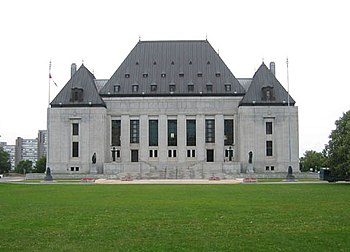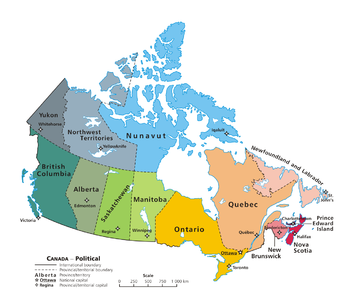 |
| Canadian Provinces and Territories (Photo credit: Wikipedia) |
Express Entry will manage applications for permanent residence under these federal economic immigration programs:
- the Federal Skilled Worker Program,
- the Federal Skilled Trades Program, and
- the Canadian Experience Class.
Provinces and territories will also be able to recruit candidates from the Express Entry system through their Provincial Nominee Programs to meet local labour market needs.
The Express Entry system has two steps:
Step 1) Potential candidates complete an online Express Entry profile
Potential candidates will complete an online Express Entry profile. This is a secure form that they will use to provide information about their:
- skills,
- work experience,
- language ability,
- education, and
- other details that will help us assess them.
Those who meet the criteria of one of the federal immigration programs listed above will be accepted into a pool of candidates.
Anyone who does not already have a job offer supported by a Labour Market Impact Assessment (LMIA) (if you need one), or a nomination from a province or territory, must register with Employment and Social Development Canada’s (ESDC) Job Bank. Job Bank will help connect Express Entry candidates with eligible employers in Canada.
Candidates are also encouraged to promote themselves to employers in other ways, such as using job boards, recruiters etc.
In most cases when there is a job being offered to a candidate, employers will need an LMIA from ESDC. The LMIA process ensures employers have made an effort to hire Canadians for available jobs. There will be no LMIA fee for permanent resident applications.
Note: Entry into the Express Entry pool does not guarantee a candidate will be issued an Invitation to Apply (ITA) for permanent residence. Invited candidates still have to meet eligibility and admissibility requirements under Canada’s immigration law (Immigration and Refugee Protection Act).
Step 2) The highest-ranking candidates in the pool will be invited to apply for permanent residence
Candidates will be ranked against others in the pool using a point-based system called the Comprehensive Ranking System. Points are awarded using the information in their profile.
Candidates with the highest scores in the pool will be issued an Invitation to Apply. Candidates will be awarded points for:
- a job offer, and/or
- a nomination from a province or territory, and/or
- skills and experience factors.
A candidate can get additional points for:
- a job offer supported by a Labour Market Impact Assessment, or
- a nomination by a province or territory
These additional points will make a candidate rank high enough to be invited to apply at the next eligible draw of candidates.
If someone is invited to apply, they will have 60 days to submit an online application for permanent residence.
Citizenship and Immigration Canada will process the majority of complete applications (meaning those with all the necessary supporting documents) in six months or less.
Candidates can stay in the pool for up to 12 months. If they do not get an Invitation to Apply for permanent residence within 12 months of submitting an Express Entry profile, they may submit a new profile. If they still meet the criteria, they can re-enter the pool. This will prevent backlogs and ensure quick processing times.
Source: http://www.cic.gc.ca/english/express-entry/index.asp


























